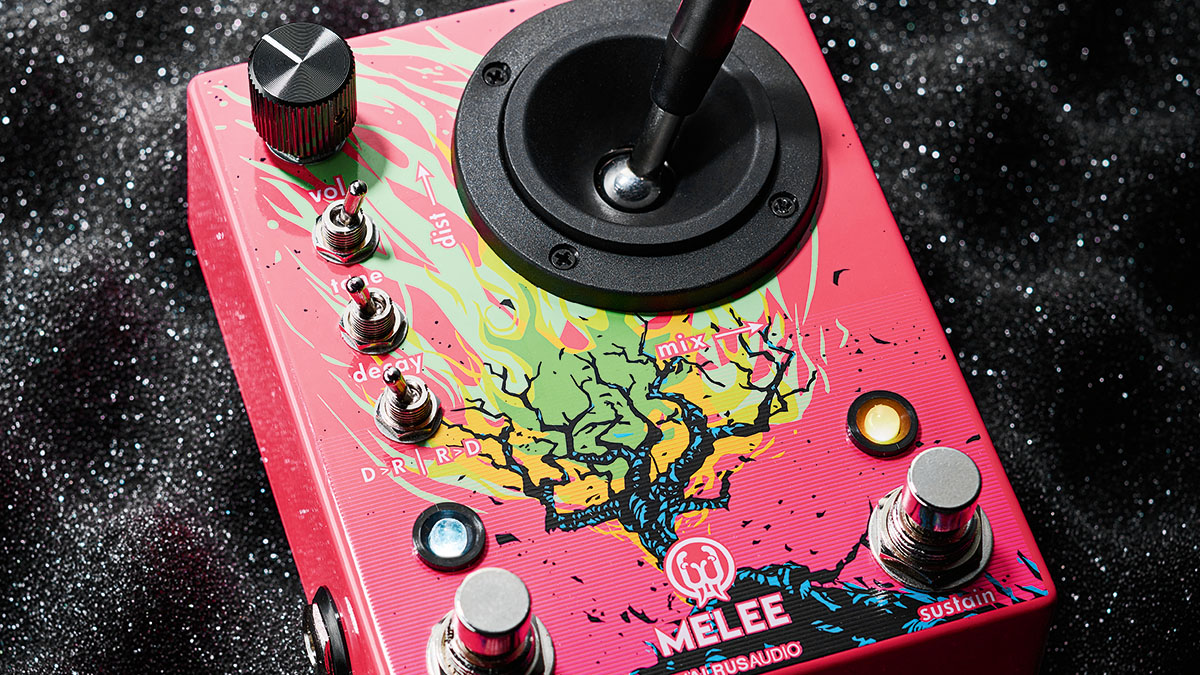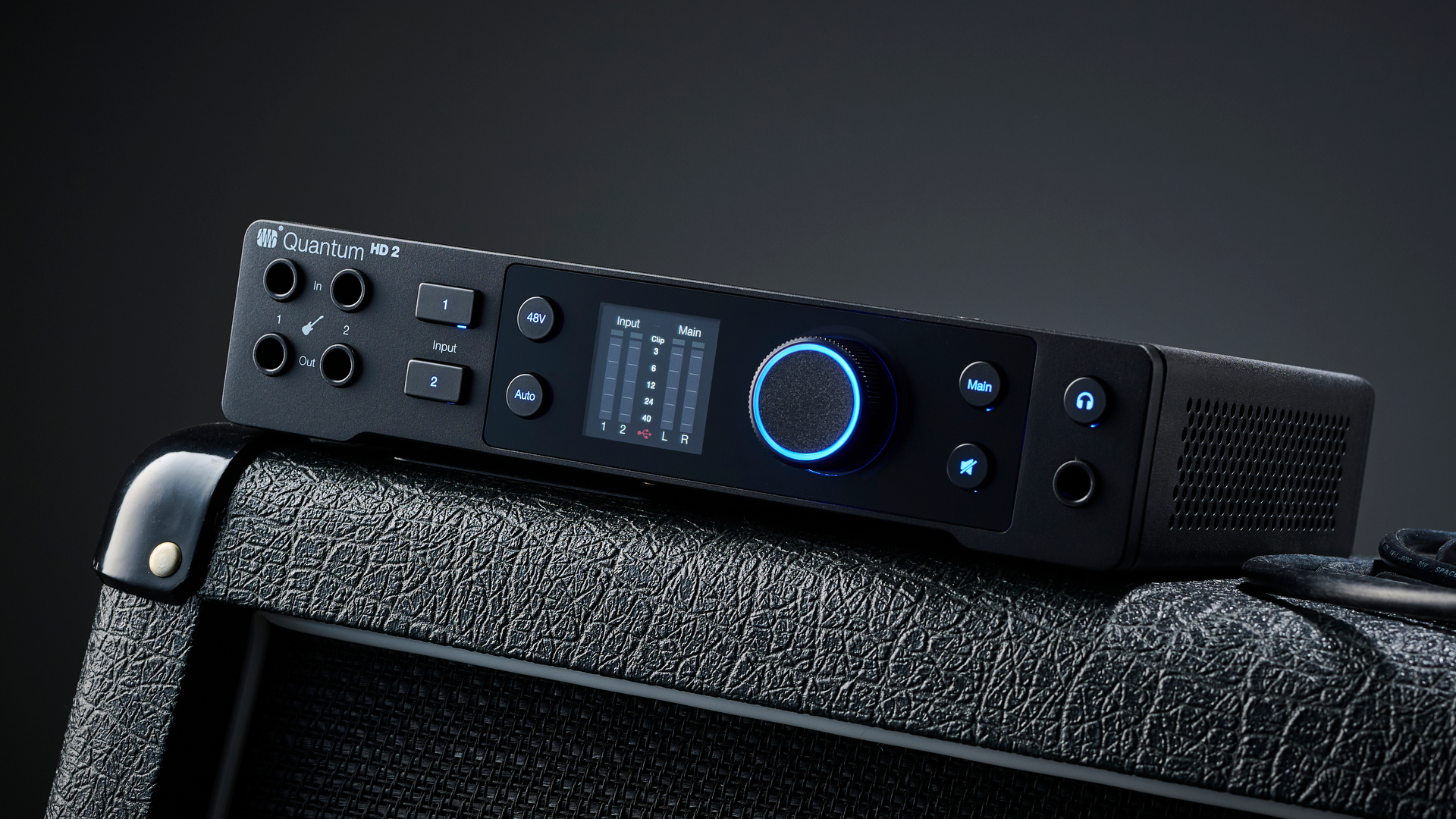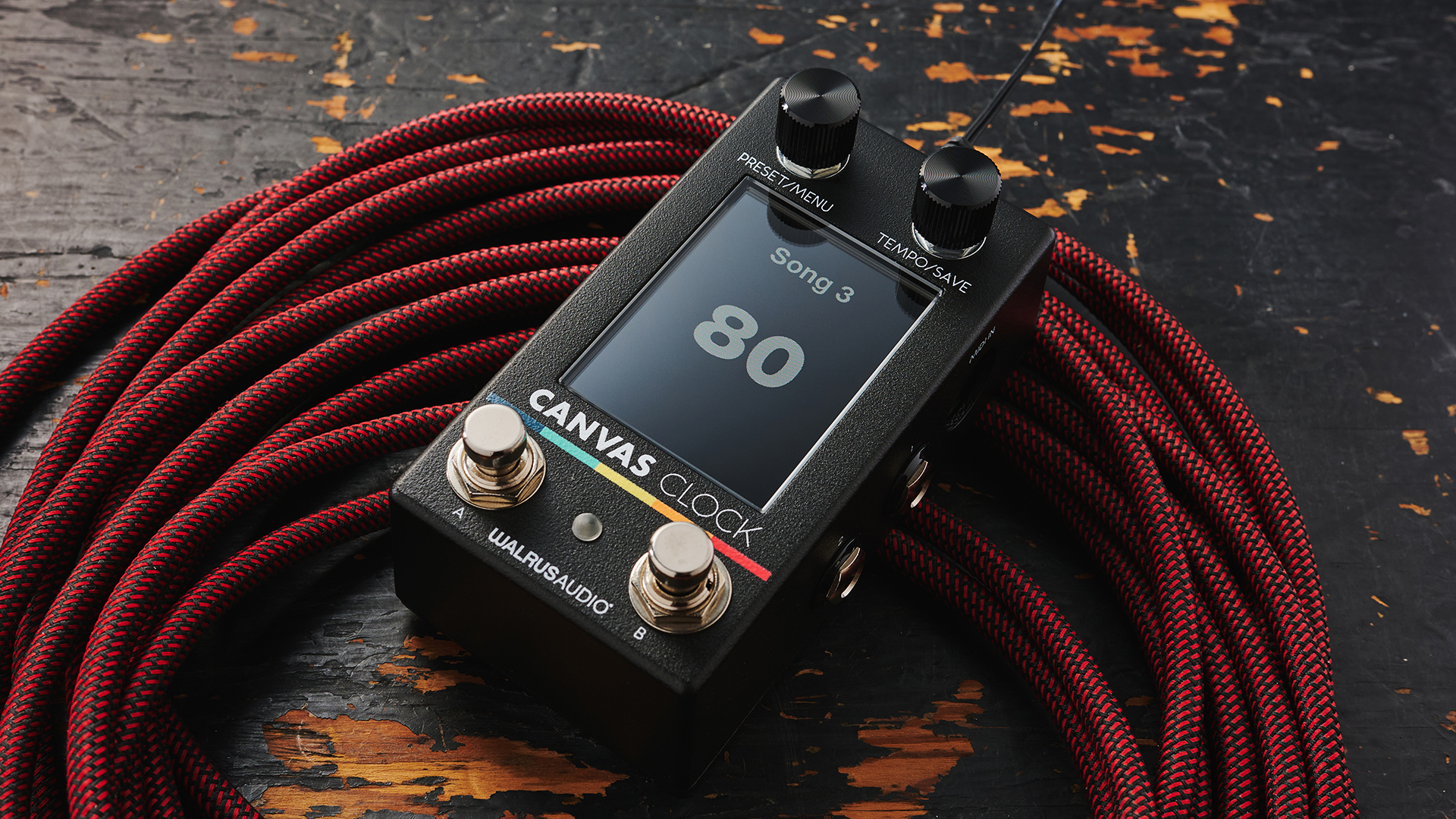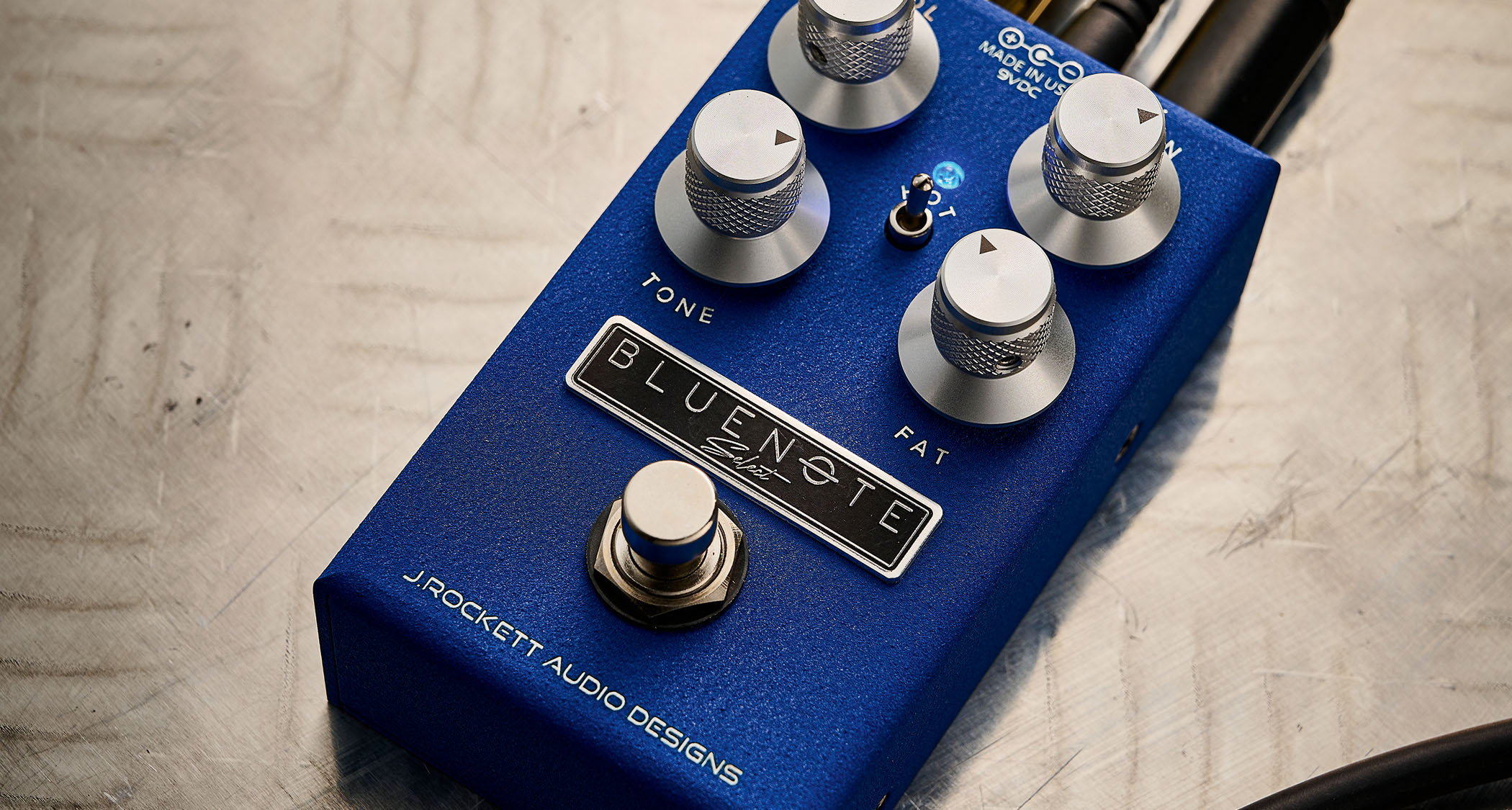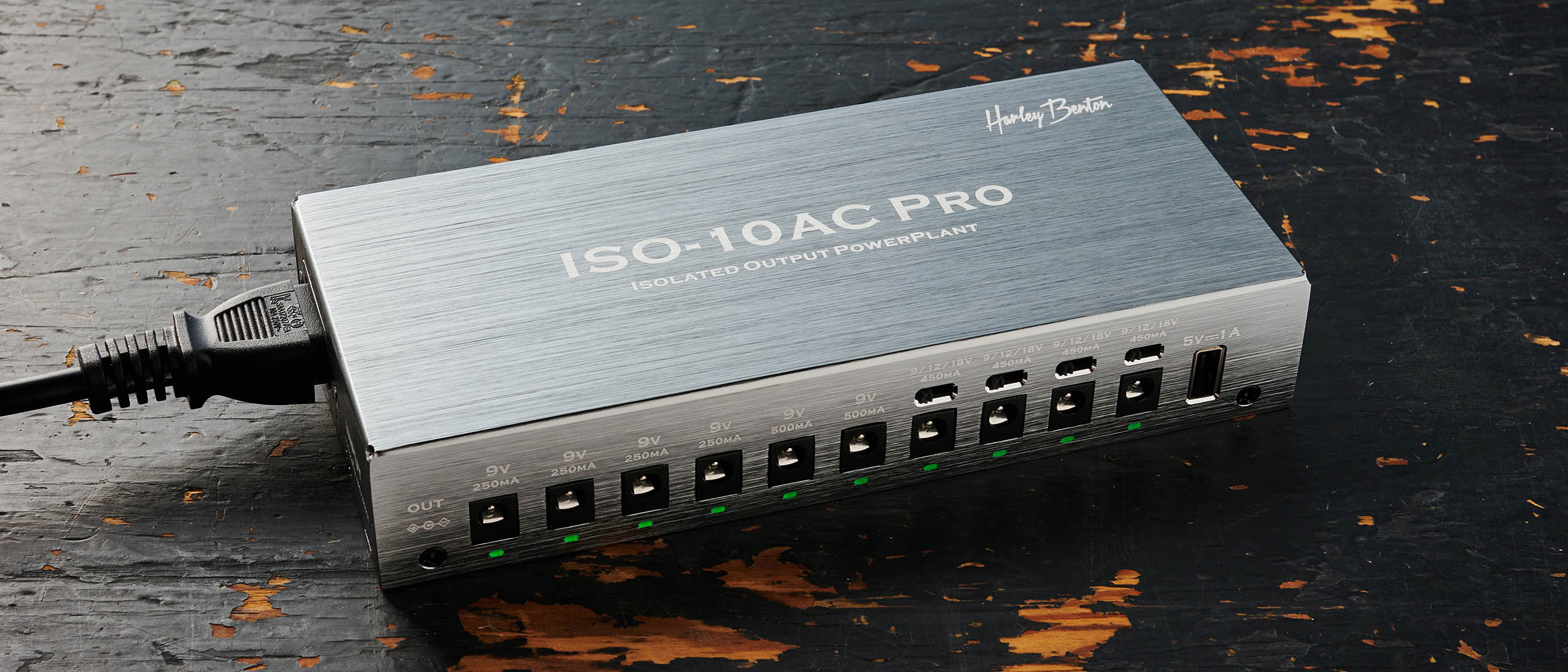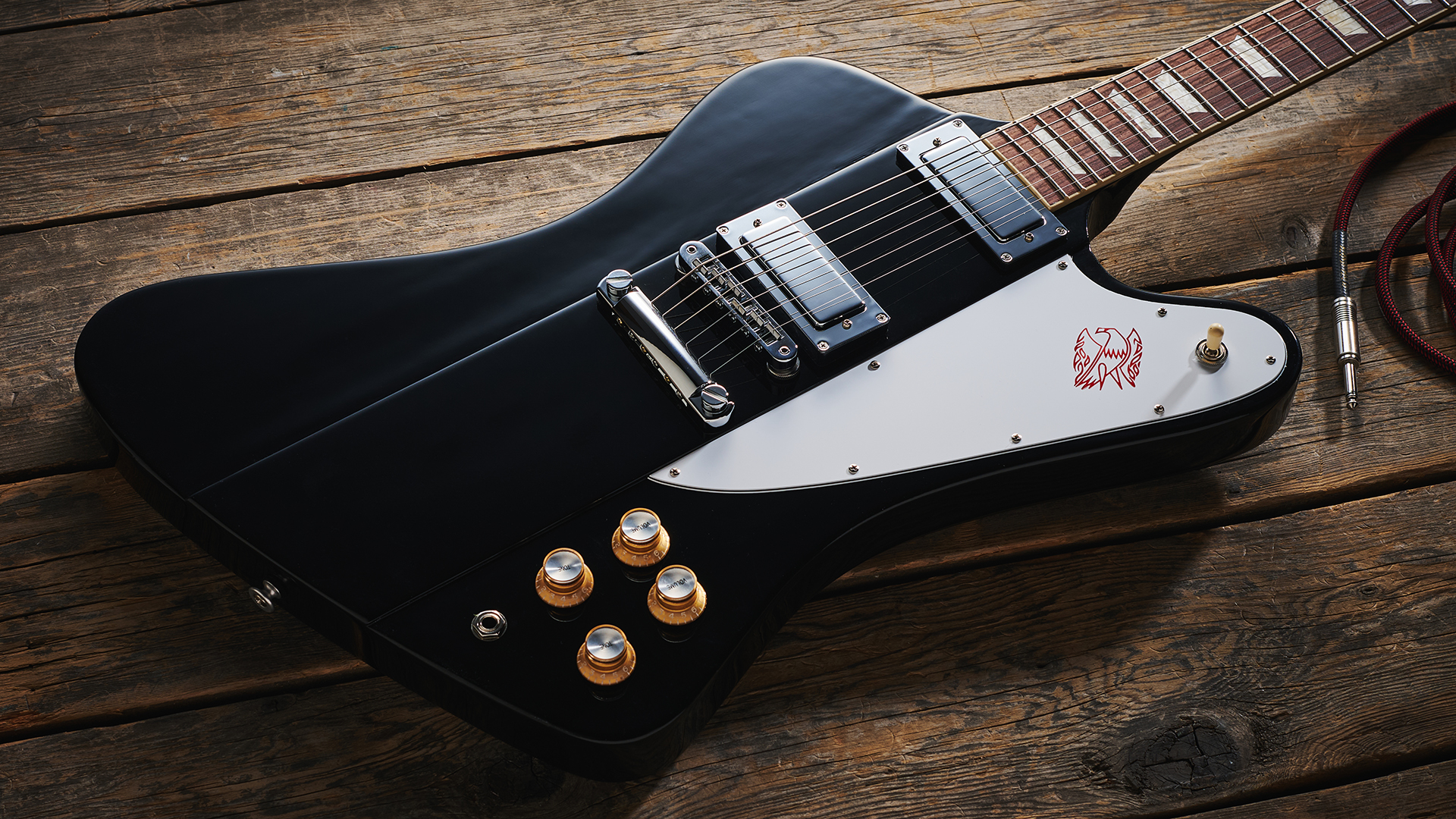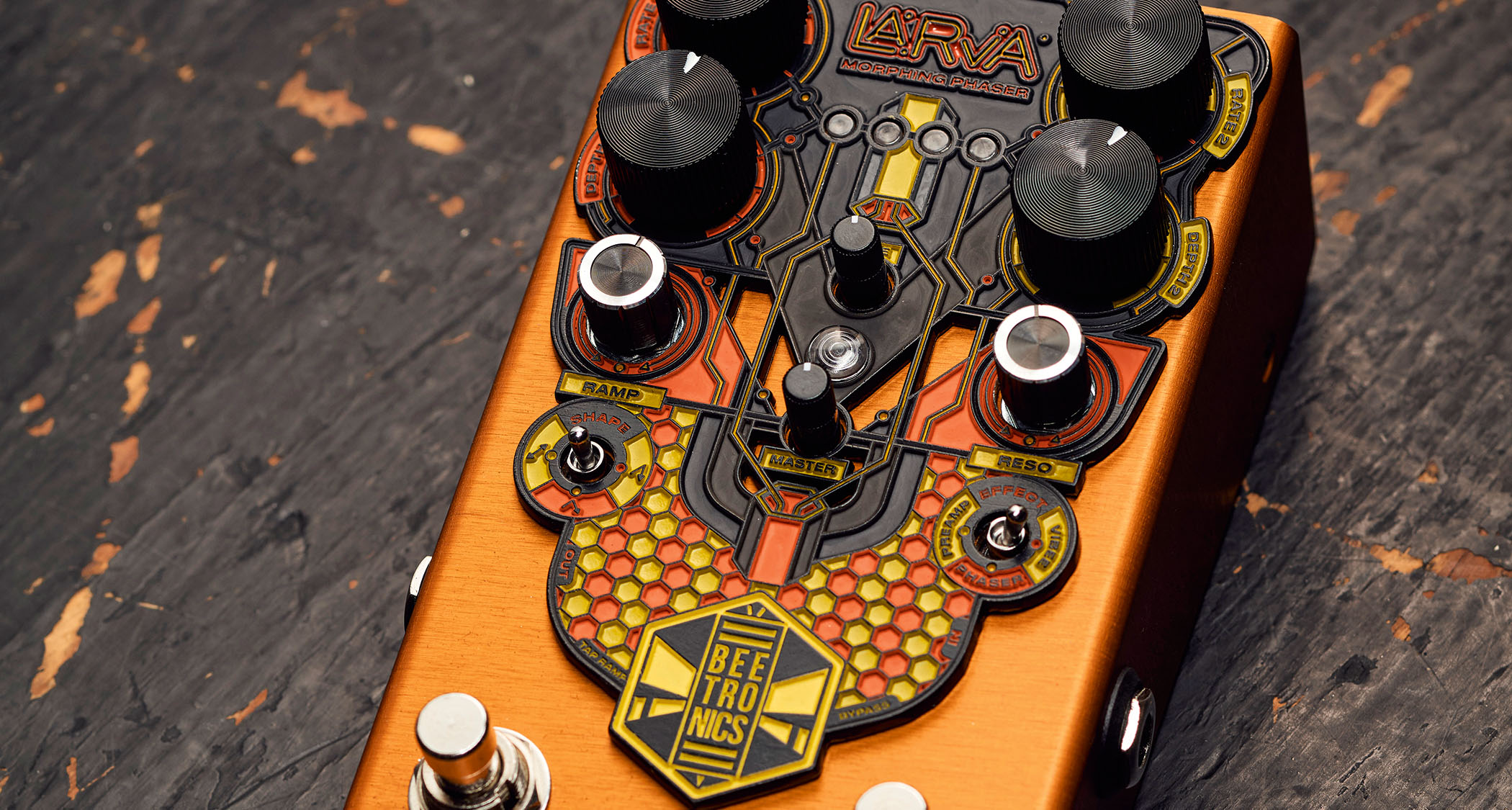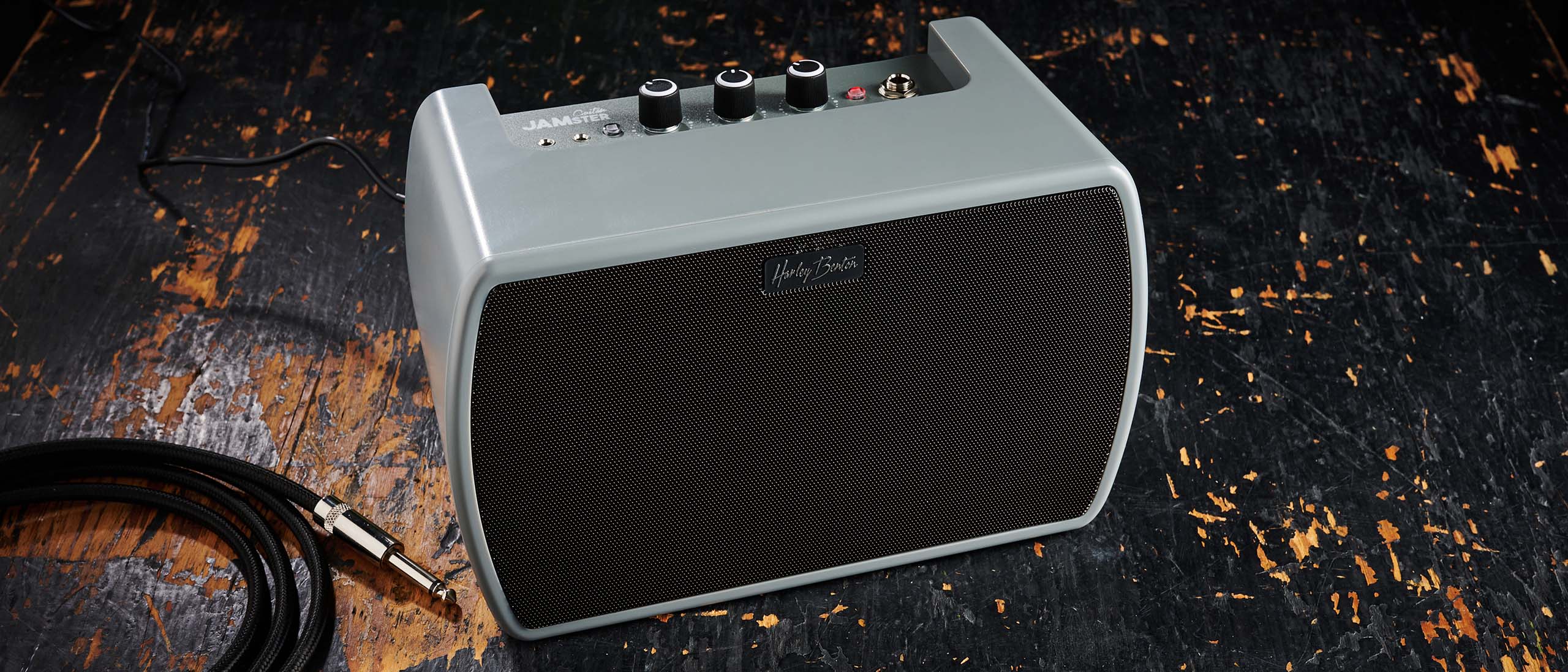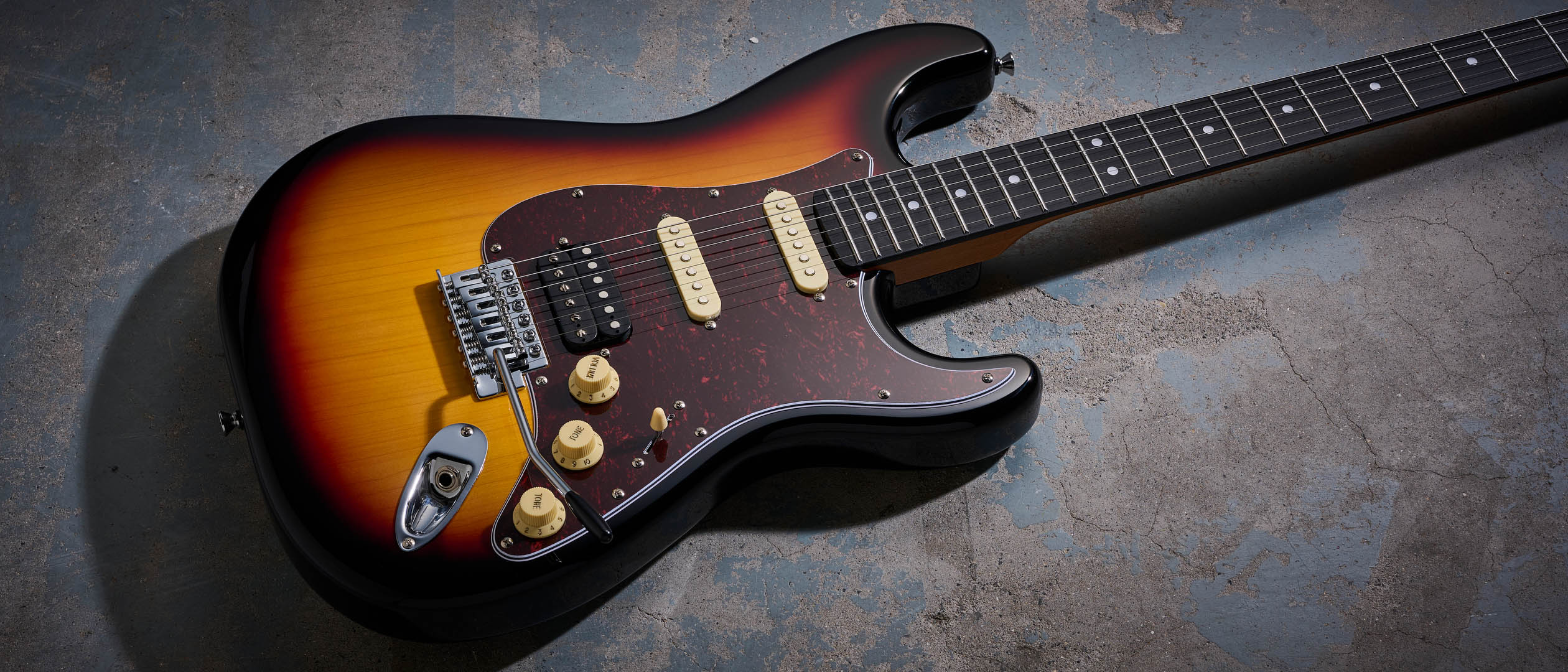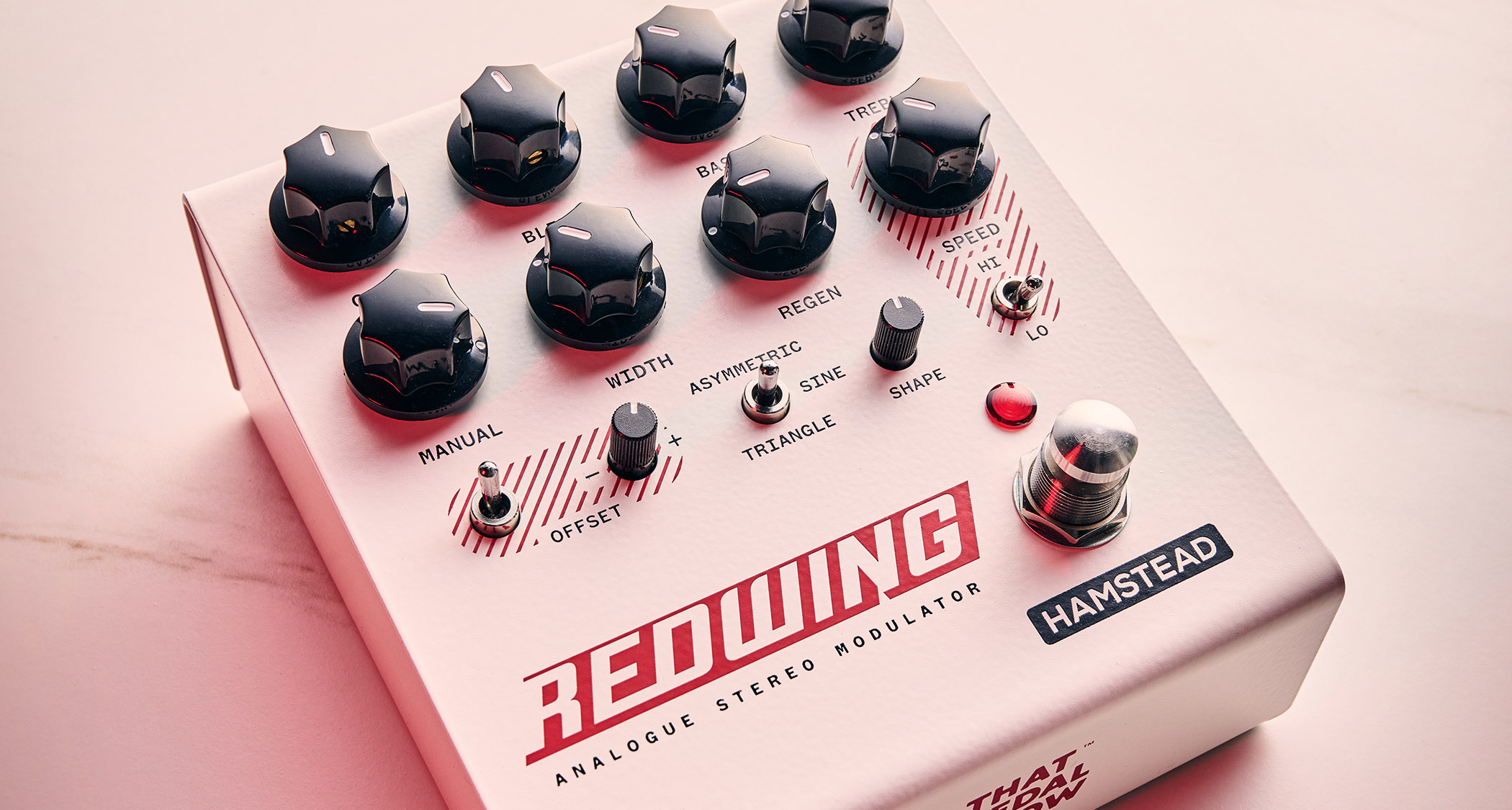Guitar World Verdict
The Melee’s unique blending of dirt and ambience in one pedal is tremendously nutty but really works – it’s perfect for an instant shoegaze experience but well capable of musically valid possibilities for many more genres.
Pros
- +
Distortion and reverb in one box.
- +
Two routing options.
- +
Simple but effective control surface.
- +
Momentary footswitch functions.
Cons
- -
Accidentally stepping on the joystick while on stage could be a worry.
You can trust Guitar World
The Walrus Audio Melee: Wall of Noise pretty much describes itself – it offers a tussle of distortion and reverb with a joystick to blend the two, complemented by a straightforward array of a volume knob and three toggle switches.
The first two provide three variations on tone and reverb decay, while the third switch toggles the effect order from the conventional distortion feeding into the reverb to the more experimental option of creating a distorted reverb trail, truly conjuring up a huge wall of noise.
There’s also a secondary function to add modulation (none/slight/high) to the reverb tail. You get a choice of three reverb types: a huge ambient reverb for washes of sound, a doomy octave down reverb, and a reverse reverb with feedback that actually sounds more like a cool reverse delay.
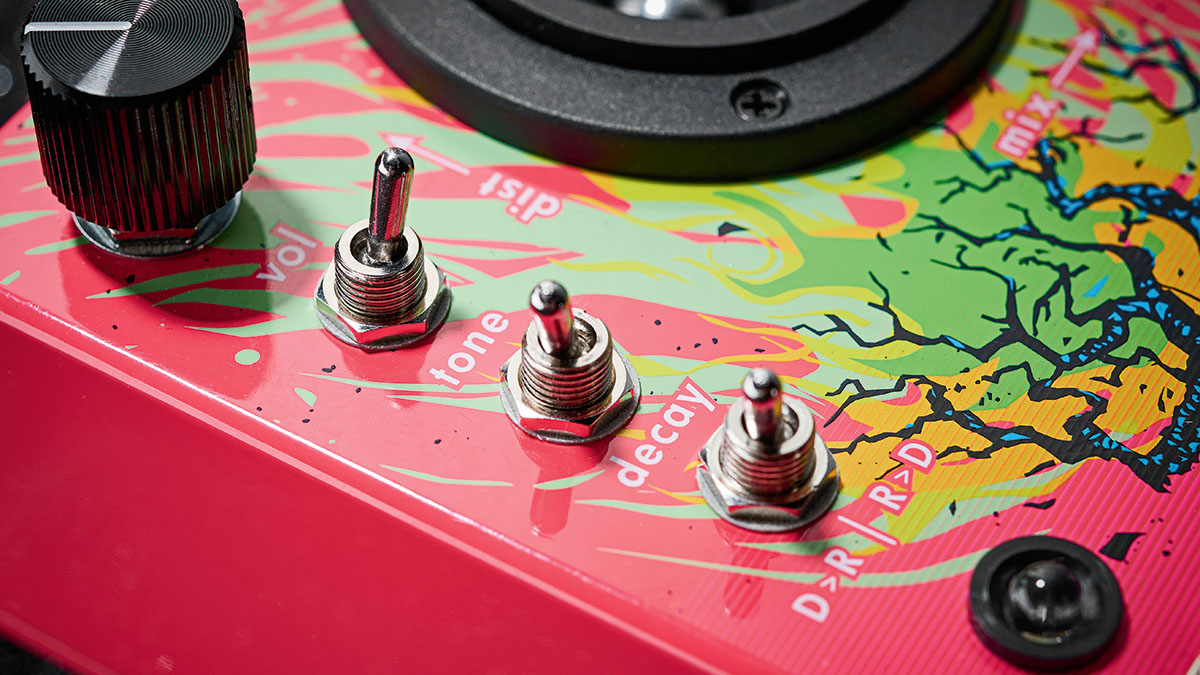
Left to right, the joystick changes the reverb mix from dry to wet, while increasing the distortion level on its up/down axis. While it’s very easy to move, it will also stay firmly in position wherever you place it. It’s robust enough to nudge into place with your feet, although if you’ve carefully sculpted a sound by placing it with your fingers, then you’ll probably want to keep your Doc Martens well clear of it on stage.
Richly textured with loads of sustain, the distortion sounds great and the reverbs are massive. It’s just a matter of moving the joystick until you find a combination of the two that works for you – and there are plenty of very usable blends available, whether you’re looking for epic single-note lead sounds with ambience, bashing out a cavernous glued-together bedrock of chords, or creating some off-the-wall sonic mayhem.
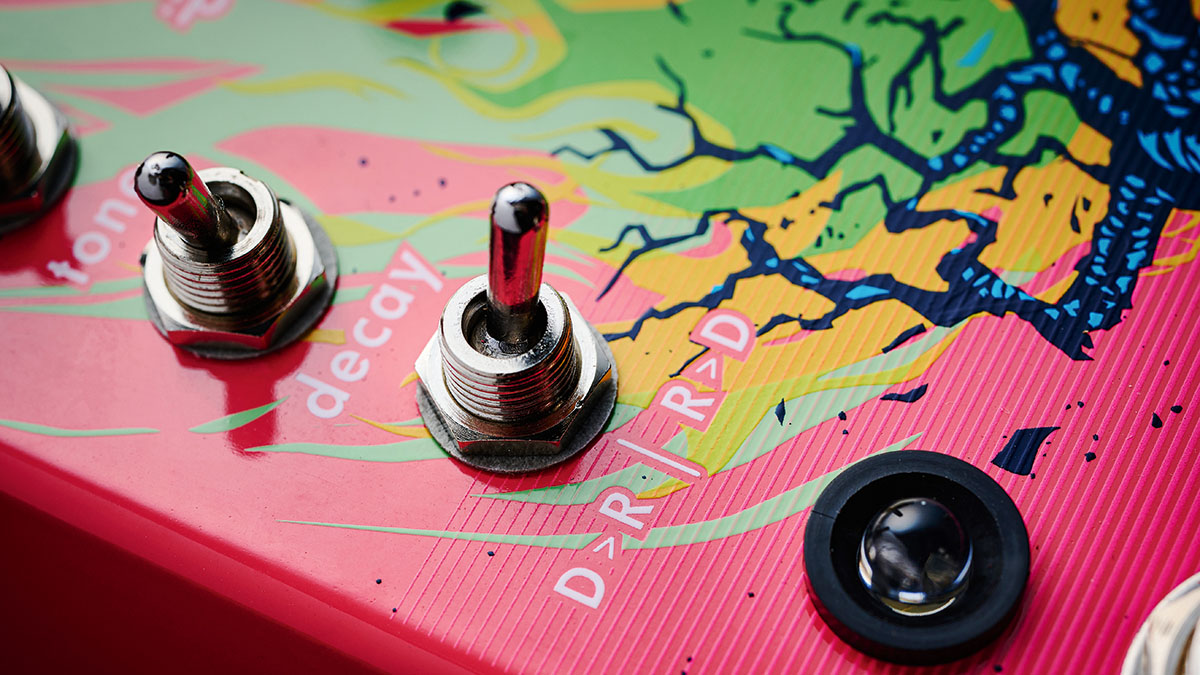
The footswitches have multiple functions to aid performance. The Bypass footswitch can be used latched as normal or to bring the effect in momentarily, while the Sustain footswitch can momentarily ramp up the reverb trails to max and back again.
Alternatively, it can be latched for a ‘sample and freeze’ function to sustain the reverb decay for pad-like sounds. Usefully, if you’d like to use the distortion totally dry, you can latch it when you haven’t played anything so it captures silence rather than a reverb tail.
Specs
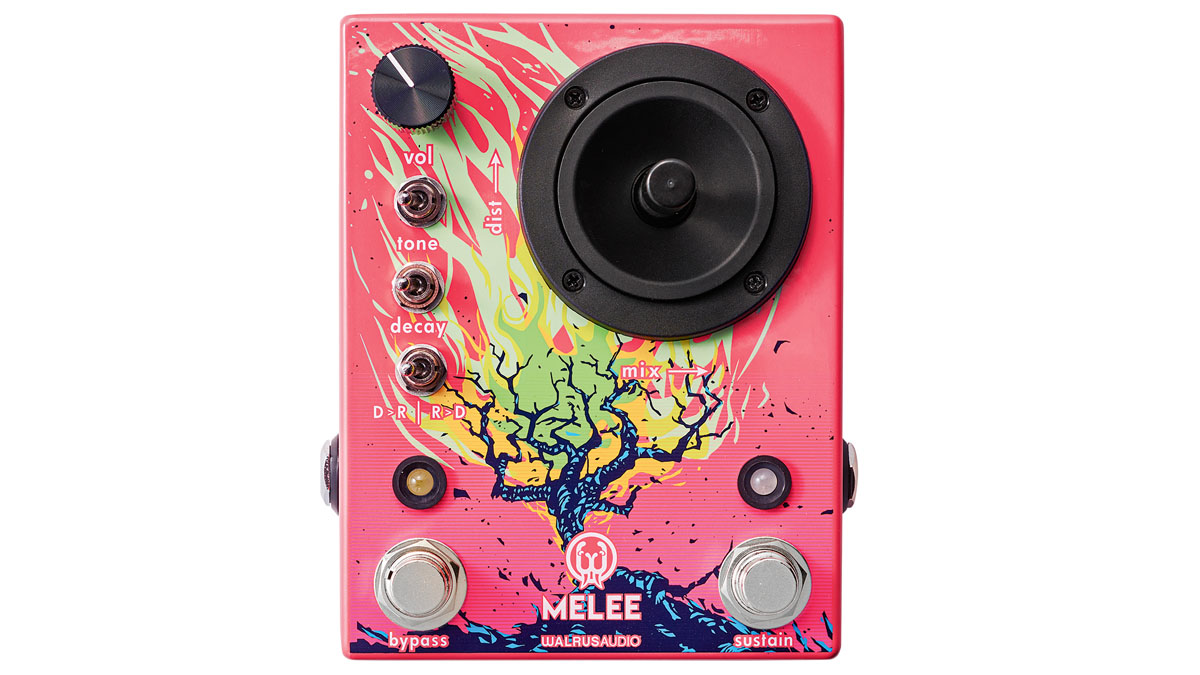
- PRICE: $299 / £305
- ORIGIN: USA
- TYPE: Distortion & reverb pedal
- FEATURES: 3x bypass modes (True, DSP, DSP+True), Joystick control of sound, 3x reverb types, flexible effect order
- CONTROLS: Volume, Tone switch (Medium/Dark/Bright), Decay switch (Minimum/Medium/Max), D>R/R>D switch, Joystick, Bypass footswitch, Sustain footswitch
- CONNECTIONS: Standard input, standard output
- POWER: 9V DC adaptor (not supplied) 200 mA
- DIMENSIONS: 98 (w) x 118 (d) x 80mm (h, including joystick)
- CONTACT: Walrus Audio
Trevor Curwen has played guitar for several decades – he's also mimed it on the UK's Top of the Pops. Much of his working life, though, has been spent behind the mixing desk, during which time he has built up a solid collection of the guitars, amps and pedals needed to cover just about any studio session. He writes pedal reviews for Guitarist and has contributed to Total Guitar, MusicRadar and Future Music among others.
